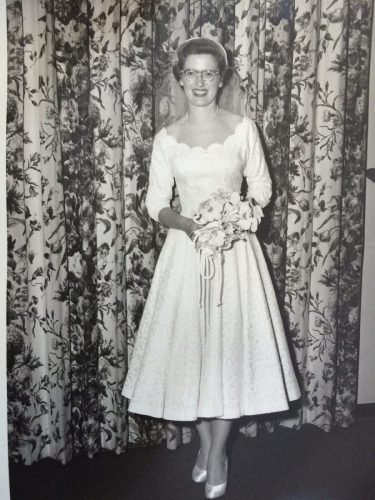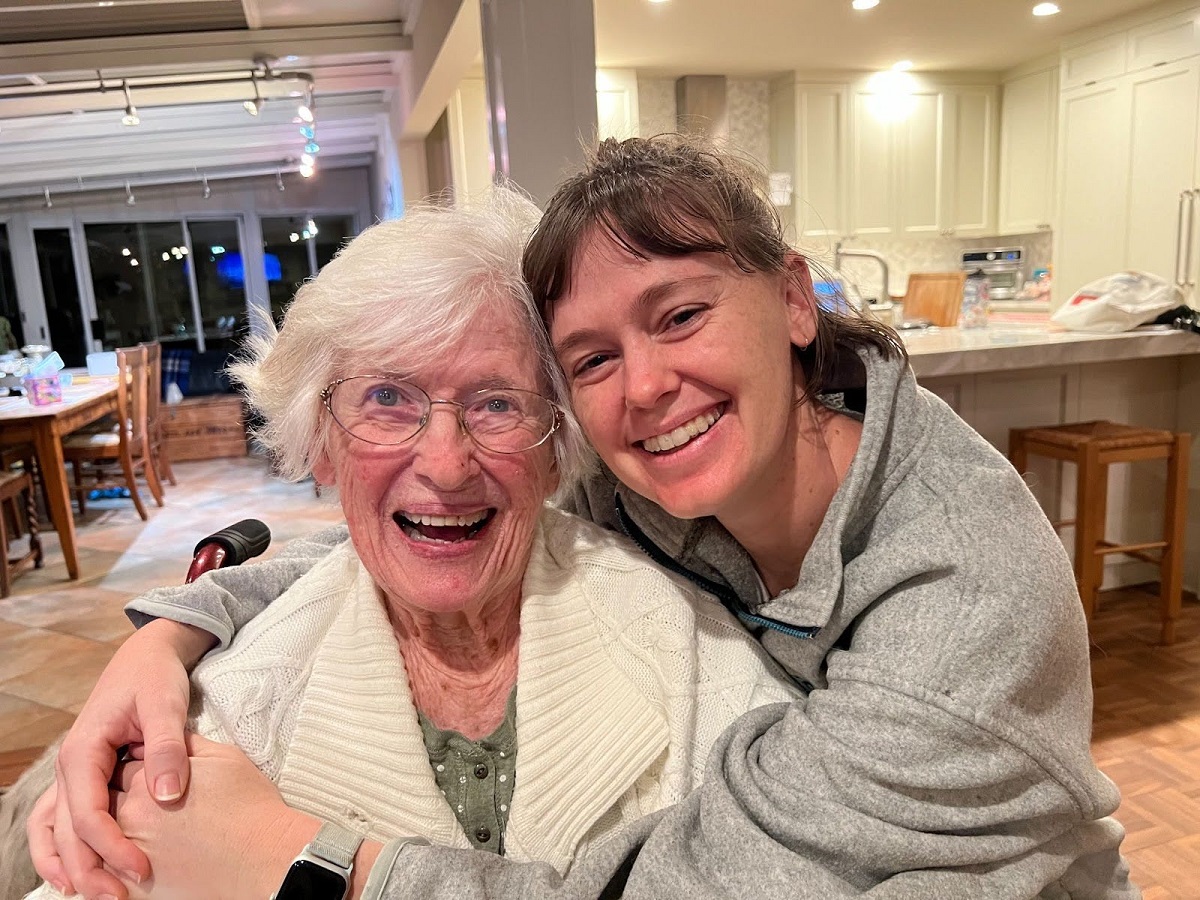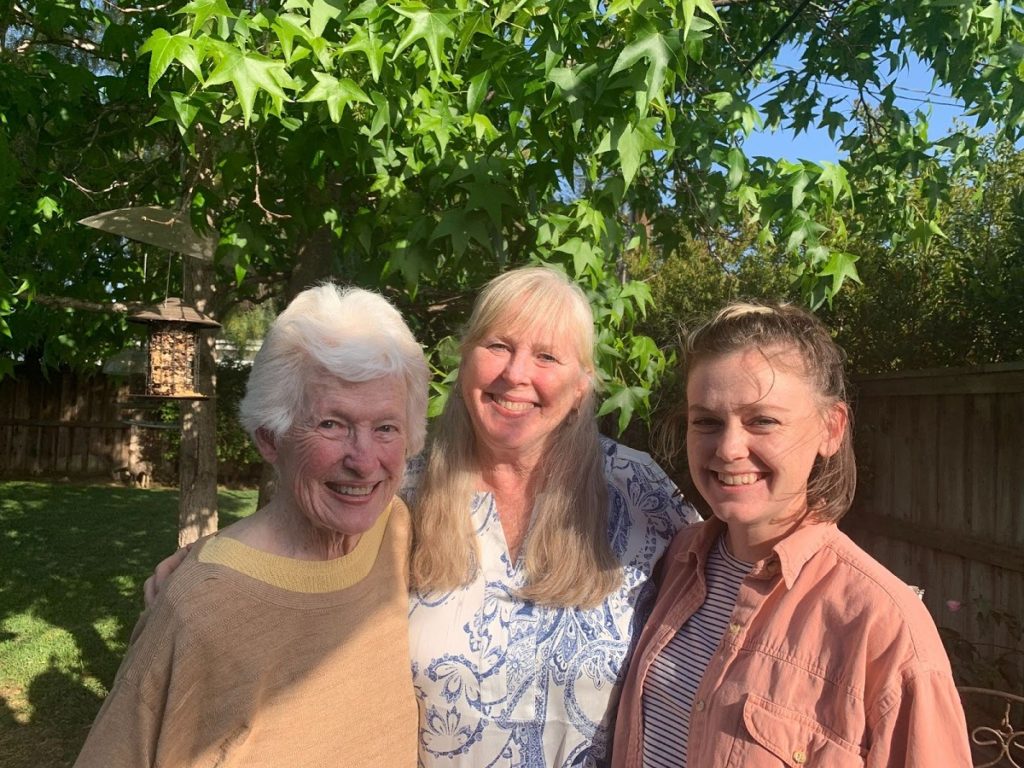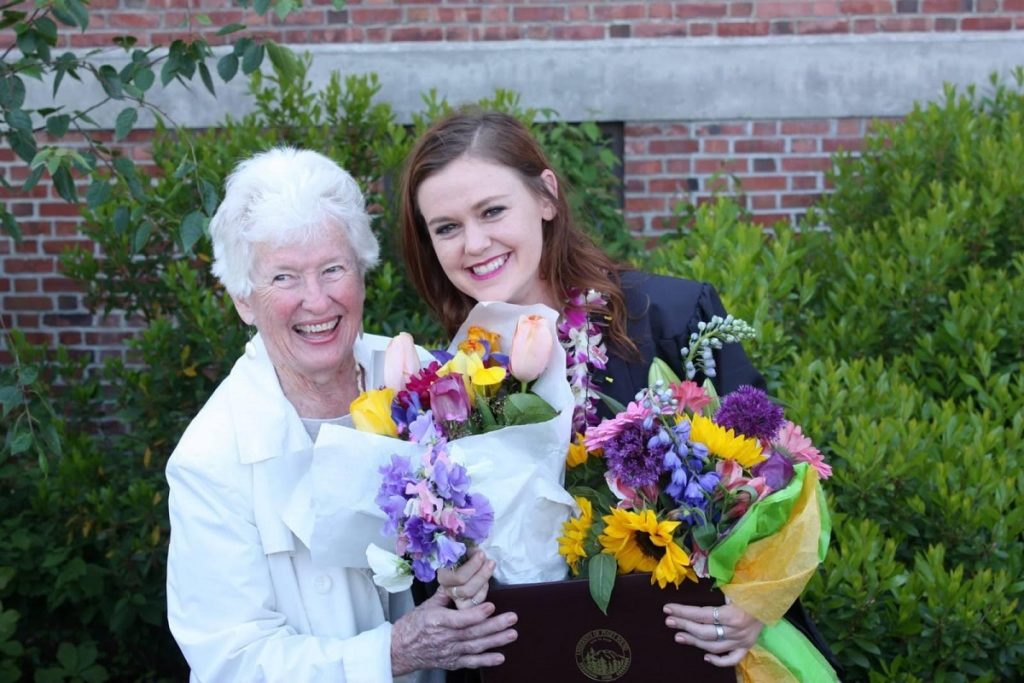Articles
What we’re contemplating, doing, and reading.
How a Compassion Practice Is Helping Me Cope with Grief
How do you provide comfort to someone who may be dying? How do you bring them peace when they are disoriented, struggling to breathe, and seeking relief? What do you do as you sit by their bedside, holding their hand, but unable to do anything more for them?
I recently experienced firsthand how vital the “active compassion” practice that I first learned about in Compassion Cultivation Training (CCT™) can be. I discovered the effect that this exercise — based on the Buddhist tradition of “Tonglen” — can have on others, as well as how the simple act of breathing can have a huge impact.
Margaret “Peggy” Irene Cole Hall Stickler is my grandmother, and she’s 98 ½ years old. I think it’s important to add the “½ a year” when you get to a certain age — to honor how many days, breaths, and memories you have held. At this impressive age, my grandma has had many beautiful moments, many deeply satisfying breaths, and she holds many joyous memories.
However, a short time ago, her health took a turn — as it will for all of us at some point — and it brought me back to my home state to be by her side and provide her with comfort.
During a recent fitful night, where she could not find rest or understand where she was, I struggled to provide her the same company and support she has given me for so many years. After she called out my name in her sleep — with my heart breaking for her discomfort and request for support — I finally realized how we would get through the night together.
I closed my eyes, took a few cleansing breaths, and focused my mind on my grandmother. On my next inhale, I imagined breathing in her discomfort. As I exhaled, I imagined washing a comforting light over her body. I inhaled, taking in her pain and darkness, transforming it into something warmer. I exhaled, sending her that warmth and relief. I inhaled her unease, giving it space and turning it into light, and exhaled, sending the ease her way. I repeated this practice all night. Breathing in her struggles, transforming them into calm, and breathing out to give her support.
The night was long and she didn’t get much sleep. But this breathwork — that’s the key focus of CI’s Active Compassion Practice: Tonglen Intensive Course — got us through the darkness of that night … until the sun joined us on the horizon.
A Duck in the Backyard

[Image above: Peggy at her wedding to Dave Hall in 1955.]
When I was young, she helped my parents by dropping me off and picking me up at school while they worked. After school, I would sit at the table with her — listening intently while she taught me the rules of poker and playing cards with her until my “poker face” got so good that I could win (or at least playing until she let me win to give a young girl confidence).
Once, when my mom asked if I was too much work for her, my grandma said that having me around was “as much fun as having a duck in the backyard.”
When, many years later, my grandma and I actually saw a duck in the backyard, it felt like we had come full circle. In that moment, watching a mallard waddle through our yard, I learned that having a duck in your backyard is an excellent way to make you smile and brighten your day.
[Image above: Peggy, Tori’s mom Mary, and Tori in the backyard where the mallard was spotted in 2020.]
As I grew up and began to make my own way to school, I remained close with my grandma — even though we no longer saw each other daily. When I moved away as a young adult, we sent postcards back-and-forth to keep in touch. I always looked forward to my return trips home, knowing I would get to go to lunch with her, play card games together, and hear stories about how she fell in love with my grandfather while working for the LA Times newspaper. I was always eager to walk into her front door, to be greeted by her smile and her saying “well, hello kid!”
Always social and eager for company, my grandma wanted nothing more than to spend time with, and take care, of the people she loves. Even now, as she struggles to take a comforting breath, she greets visitors with a smile and — in true grandmother fashion — asks if you’ve had enough to eat and if you’re warm enough.
She is someone for whom compassion comes naturally and someone who is dedicated to ensuring that those she cares for and those who are suffering find comfort. Many aspects of compassion that I work with every day at Compassion Institute are things that I learned from my grandma at a young age.
[Image above: Peggy and Tori at Tori’s college graduation in 2015.]
Giving & Taking
If you’re not familiar with it,“Tonglen” is Tibetan for “giving and taking,” and is an ancient meditation technique. There are many different versions of Tonglen, but at its core, it’s a breathing meditation used to ease the suffering of others. Before using it with my grandmother, I had called upon it many times to bring comfort to loved ones and those in distress.
When you take CCT™ and/or the Tonglen Intensive course, you’ll discover “active compassion” techniques like this that can help you:
- • Ease the suffering of a loved one through breathwork
- • Provide care for yourself while you provide care for another
- • Develop a sense of common humanity — learning that we all experience suffering and stress, loss, and pain.
I know that I will not be able to bring my grandma, Peggy, comfort forever, and that our days of playing poker are long gone. I know the time will come when I say my final goodbye, and we take our final breath together. In the meantime, I will continue to picture my grandma’s beautiful face, hearing her laugh in my ears, and using the practice of Tonglen by inhaling to take away her suffering and exhaling to send her peace.
And, as I sit by her side now, I know that my time with her has indeed been as much fun as having a duck in the backyard.
To discover more about Tonglen and how compassion can benefit both you and your loved ones, sign up for Amanda Mahoney’s 8-week CCT course — which starts March 25, 2024.
If you’ve already taken CCT, are signed up for a session — or you have experience with meditation — you’re invited to join Active Compassion Practice: Tonglen Intensive Course with Erika Rosenberg, PhD. April 17 & 24, 2024.




